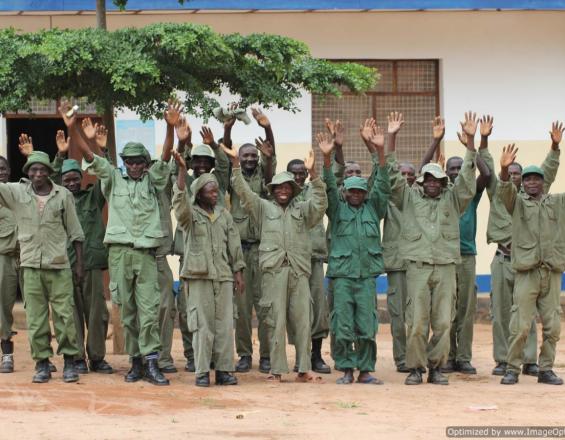Participación de las comunidades locales en las patrullas contra la caza furtiva

El proyecto Ruvuma Elephant aborda el dramático descenso del número de elefantes debido a la caza furtiva en una zona que abarca 2,5 millones de hectáreas, incluido el corredor Selous-Niassa Wildlife Corridor, en el lado tanzano de la frontera. Reconoce las causas socioeconómicas de la caza furtiva al tiempo que aumenta la capacidad de patrulla, implicando a las comunidades locales en la gestión de las AP. Las actividades incluyen equipos conjuntos de patrulla, incentivos económicos, educación y formación.
Contexto
Défis à relever
Ubicación
Impactos
- Desde el inicio del proyecto, los resultados mensurables han incluido: la incautación de 2.181 lazos, 17.037 maderas ilegales (piezas) y 191 colmillos de elefante, así como 836 armas de fuego; 1.552 cartuchos de munición, 6 vehículos, 16 motocicletas y la detención de 601 personas - Las intervenciones llevadas a cabo incluyen la prestación de asistencia directa a los agricultores locales para la protección de sus medios de subsistencia (por ejemplo, la mitigación de los conflictos entre humanos y elefantes), el apoyo a actividades generadoras de ingresos para las comunidades del Área de Gestión de la Vida Silvestre (como el cultivo de guindillas y la apicultura), Más del 85% de todas las detenciones e incautaciones de armas ilegales y marfil se han realizado con la colaboración de miembros de las comunidades locales y la información recibida de ellos. La mayoría de las detenciones se han producido fuera de las zonas protegidas y se han llevado a cabo antes de que se produjeran nuevas matanzas ilegales de animales salvajes dentro de la zona REP. El número de personas detenidas sobre el terreno mediante patrullas rutinarias ha disminuido drásticamente desde el primer año del proyecto, al igual que el descubrimiento de cadáveres y marfil.
